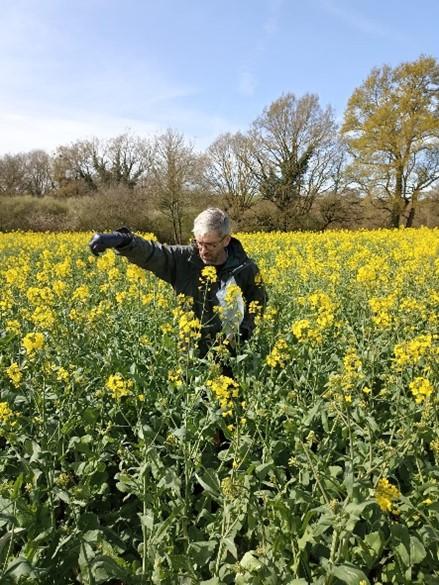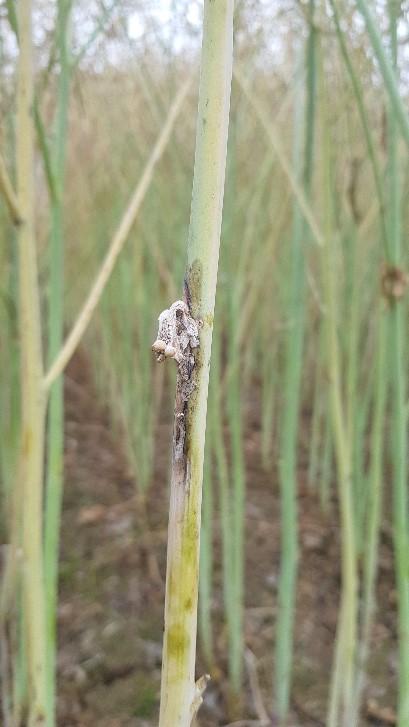France
May 30, 2024
Faced with the challenges of the agro-ecological transition, there are many ways to deploy levers to reduce the use of phytosanitary products. The use of varieties resistant to certain bioaggressors is one of the solutions that can be useful and effective in meeting this challenge.
Sclerotinia, a fungal disease of oilseed rape, is highly detrimental to yield, and can be controlled by applying fungicide protection at the right time. In a context of high potential damage and lack of curative solutions, most rapeseed crops are protected by this preventive treatment. In the vast majority of cases, however, the disease does not develop, highlighting an area for improvement in reducing rapeseed IFT. Years of public and private research aimed at improving the genetic resistance of rapeseed to this fungus have recently led to the commercialization of varieties with good resistance to sclerotinia, opening the way to new control strategies and reduced phytosanitary applications. However, there is no protocol for evaluating this varietal character in the official CTPS registration process.
Terres Inovia (Coord.), GEVES, INRAE, Corteva and Innolea have joined forces to address this issue, with the PRECOTION project, which began in 2022 and will run until the end of 2024 (financed by FranceAgriMer, AO Connaissance).

Which methods?
Since the start of the project, 12 trials (4 in 2022/2023 and 8 in 2023/2024) have been set up in France, to evaluate an artificial contamination method using infected millet grains. This method aims to improve the success rate of trials, in a context where the development of the disease in natural contamination is highly uncertain. Contaminated grains serve as a support for the fungus to promote the 1st stages of infection. The field set-up aims to evaluate the behavior of different rapeseed genetic constructs (7 to 8 varieties) with different doses/dates of inoculum application. Part of the set-up is reserved for natural contamination to ensure validation of the method.
 Inoculation of plants with millet grains in 2023/2024
Inoculation of plants with millet grains in 2023/2024
Promising initial results
Infection proved successful in the 1st year on two inoculated trials, guaranteeing CTPS a high probability of success in future trials, even in less favorable conditions, and differences in behavior were observed between varieties.
Inconsistencies were sometimes observed between the expertise of breeders on their material and the results acquired in artificial contamination.

23 to 43% of plants affected on average in 2022/2023, depending on the trial, all modalities combined.
Before validating the method, however, one essential point remains to be verified: does the artificial contamination test reflect the behavior of varieties in natural contamination? To date, there is still too little data available to know, and above all, the absence of data on natural contamination in our trials means that we cannot answer this question. The network of trials to be set up in 2023/2024 will enable us to enrich the dataset in order to reach a conclusion on the method(s) to be used in the evaluation of rapeseed varieties against sclerotinia.
What purpose?
At the end of this project, the protocol(s) proposed to the CTPS Rapeseed and other Cruciferae section will enable an official field assessment of the behavior of rapeseed varieties with regard to sclerotinia, as part of VATE registration studies. The inclusion of this trait in a pre- and post-listing continuum will enable us to enhance the value of genetic progress, and to provide reference material for prescribers. The availability of an official test will enable authorized structures to assist breeders with any requests for CEPP files. Ultimately, this information will lead to better advice for farmers on how to combat sclerotinia, and ultimately to control strategies that reduce the use of plant protection products.